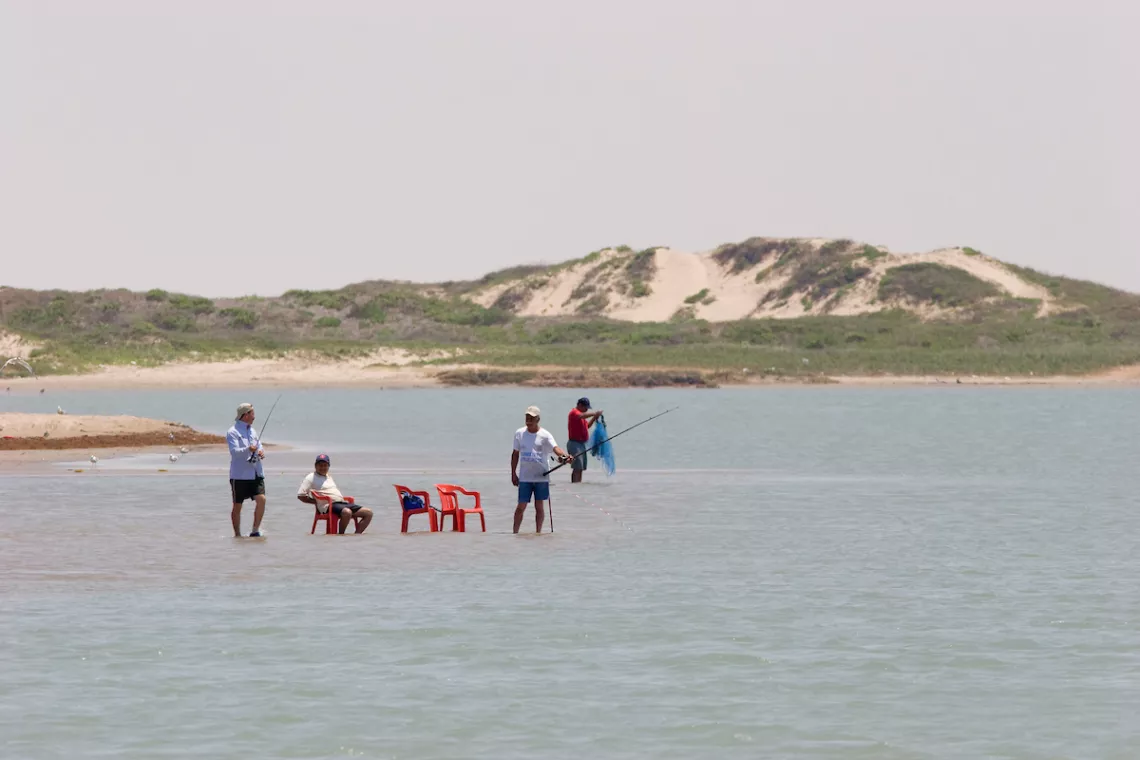
Photo: Mouth of the Rio Grande, by Al Braden.
On Sunday, water advocates issued a warning that the most consequential water bill of the 88th Texas Legislature lost a key provision to address water infrastructure in the Rio Grande Valley and other parts of the state that have faced historic disinvestment. The SB 28 Conference Committee released its conference committee report late on Saturday.
Senate Bill 28, which would create the Texas Water Fund and the New Water Supply for Texas Fund, would infuse $1 billion into the state’s crumbling water infrastructure. The measure and its accompanying constitutional amendment, SJR 75, have received overwhelming bipartisan support in both chambers of the legislature. Part of the new “Texas Water Fund” enabling legislation would require the Texas Water Development Board, the state agency overseeing the fund, to ensure that a portion of the fund is used for water and wastewater service for “rural political subdivisions” and “municipalities with a population of less than 150,000.”
When the House took up the committee substitute for SB 28, three floor amendments were added, including one amendment by Rep. Ana-Maria Ramos (D – Richardson) that added “economically distressed areas” to the list of areas that the TWDB must ensure water funding is used for.
However, Sen. Charles Perry (R-Lubbock), moved to refuse to concur with House amendments and appoint a conference committee. Perry specifically mentioned removing the Economically Distressed Areas Program (EDAP) from the bill. EDAP is a program housed at the TWDB that focuses water or wastewater connection in economically distressed areas. The program itself, though, was not set to benefit from the legislation in any way, with or without the amendment; only the EDAP-eligible communities would have benefitted. These communities have been removed as of the release of the conference committee report.
In response, Alex Ortiz, Water Resources Specialist of the Sierra Club’s Lone Star Chapter, issued the following statement:
“Economically distressed areas exist in suburban, urban, and unincorporated areas across the state — and are predominantly correlated with communities of color. It would clearly be a major environmental racism issue to prioritize only rural communities and municipalities of smaller populations without placing the same emphasis on continued water service and maintenance to our most vulnerable communities. The amendment by Rep. Ramos only seeks to lift up all Texans and ensure that these communities receive the same consideration and priority as predominantly white rural areas of the state. Without the amendment, vulnerable communities that exist in unincorporated parts of populous counties, like in the Rio Grande Valley, would be immediately ranked below communities in other parts of the state and continue to suffer from lack of safe and sustained drinking water access.”